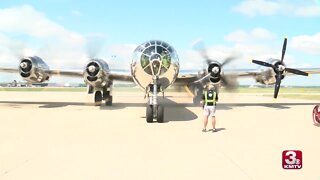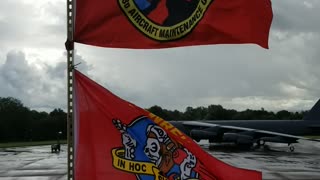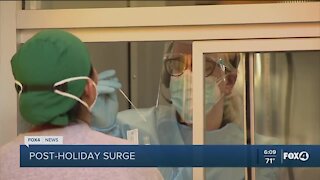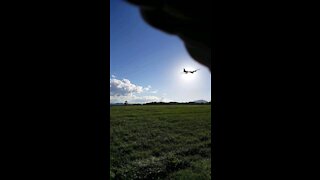Premium Only Content

2013: US Officials Admit: Al Qaeda Bomber Was CIA Informant
The CIA had al-Qaeda fooled from the beginning.
Last month, US intelligence learned that al-Qaeda's Yemen branch hoped to launch a spectacular attack using a new, nearly undetectable bomb aboard an airliner bound for America, officials say.
But the man the terrorists were counting on to carry out the attack was actually working for the CIA and Saudi intelligence, US and Yemeni officials told The Associated Press on Tuesday.
The dramatic sting operation thwarted the attack before it had a chance to succeed.
It was the latest misfire for al-Qaeda, which has repeatedly come close to detonating a bomb aboard an airliner. For the United State, it was a victory that delivered the bomb intact to US intelligence.
The officials spoke to the AP on condition of anonymity because of the sensitivity of the operation. The cooperation of the would-be bomber was first reported Tuesday evening by The Los Angeles Times.
The FBI is still analyzing the explosive, which was intended to be concealed in a passenger's underwear. Officials said it was an upgrade over the bomb that failed to detonate on board an airplane over Detroit on Christmas 2009. This new bomb contained no metal and used a chemical — lead azide — that was to be a detonator in a nearly successful 2010 plot to attack cargo planes, officials said.
Security procedures at US airports remained unchanged Tuesday, a reflection of both the US confidence in its security systems and recognition that the government can't realistically expect travelers to endure much more. Increased costs and delays to airlines and shipping companies could have a global economic impact, too.
"I would not expect any real changes for the traveling public," said House Intelligence Committee Chairman Mike Rogers. "There is a concern that overseas security doesn't match ours. That's an ongoing challenge."
While airline checks in the United States mean passing through an onerous, sometimes embarrassing series of pat-downs and body scans, procedures overseas can be a mixed bag. The US cannot force other countries to permanently adopt the expensive and intrusive measures that have become common in American airports over the past decade.
The Transportation Security Administration sent advice to some international air carriers and airports about security measures that might stave off an attack from a hidden explosive. It's the same advice the US has issued before, but there was a thought that it might get new attention in light of the foiled plot.
The US has worked for years to try to improve security for US-bound flights originating at international airports. And many countries agree that security needs to be better. But while plots such as the Christmas attack have spurred changes, some security gaps that have been closed in the US remain open overseas.
Officials believe that body scanners, for instance, probably would have detected this latest attempt by al-Qaeda to bring down a jetliner. Such scanners allow screeners to see objects hidden beneath a passenger's clothes.
But while scanners are in place in airports nationwide, their use is scattershot overseas. Even in security-conscious Europe, the European Union has not required full-body imaging machines for all airports, though a number of major airports in Paris, London, Frankfurt and elsewhere use them.
All passengers on US-bound flights are checked against terrorist watch lists and law enforcement databases.
-
 2:18
2:18
KMTV
4 years agoB-29 bomber was recently restored
43 -
 2:21
2:21
KJRH
4 years agoEMSA officials urge caution
241 -
 0:14
0:14
dsturm72
4 years agoBomber Task Forrce 20-4
32 -
 2:18
2:18
KJRH
4 years agoOklahoma officials on Capitol Hill
5398 -
 1:53
1:53
WFTX
4 years agoOfficials try to expedite vaccinations
7 -
 0:55
0:55
kdp7676
4 years agoAdmit it
991 -
 5:12
5:12
Fun With Eric
4 years agoAxial Bomber Fun Time
35 -
 2:52
2:52
WFTX
4 years agoOfficials seek justice after Capitol riots
6555 -
 0:23
0:23
wgptroy1
4 years ago $0.01 earnedB-17 Bomber
803 -
 0:31
0:31
Insaneinnovationsarmory
4 years ago $0.94 earnedUS MILITARY STEALTH BOMBER TAKES FLIGHT
1.86K2